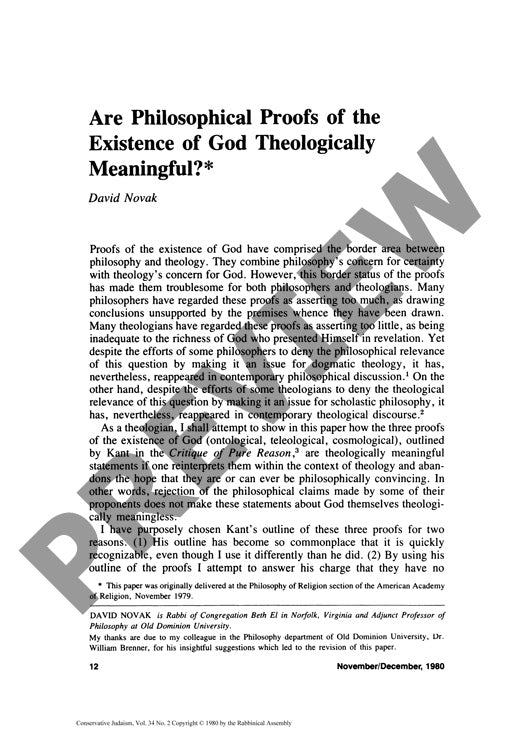Are Philosophical Proofs of the Existenc
Couldn't load pickup availability
Classical philosophical proofs for God's existence - while failing as purely rational demonstrations - take on vital theological meaning when reframed as expressions of revelatory experience rather than philosophical arguments. By reinterpreting Kant's outline of the ontological, teleological, and cosmological proofs within a faith-based framework, these traditional arguments emerge as conditions and postulates of religious understanding rather than attempted demonstrations. The ontological argument functions as a necessary condition for God's commanding authority, expressing divine transcendence through a via negativa that denies any rival to God's supremacy. Similarly, the teleological and cosmological arguments structure humanity's covenantal relationship to creation - presenting the world as a domain for faithful action while preserving nature's independence from human purposes. The methodology employs analysis of these proofs' function within revelatory rather than purely rational contexts, demonstrating how they provide critical ontological foundations that support rather than compete with faith-based knowledge. This reinterpretation preserves the intellectual rigor of classical proofs while properly situating them within theological discourse, where they serve not as philosophical demonstrations but as articulations of divine self-presentation within the context of revelation and religious experience.

More Information
-
Physical Description
-
Publication Information
Published 1980
ISBN
-
Publication Credits
David Novak

